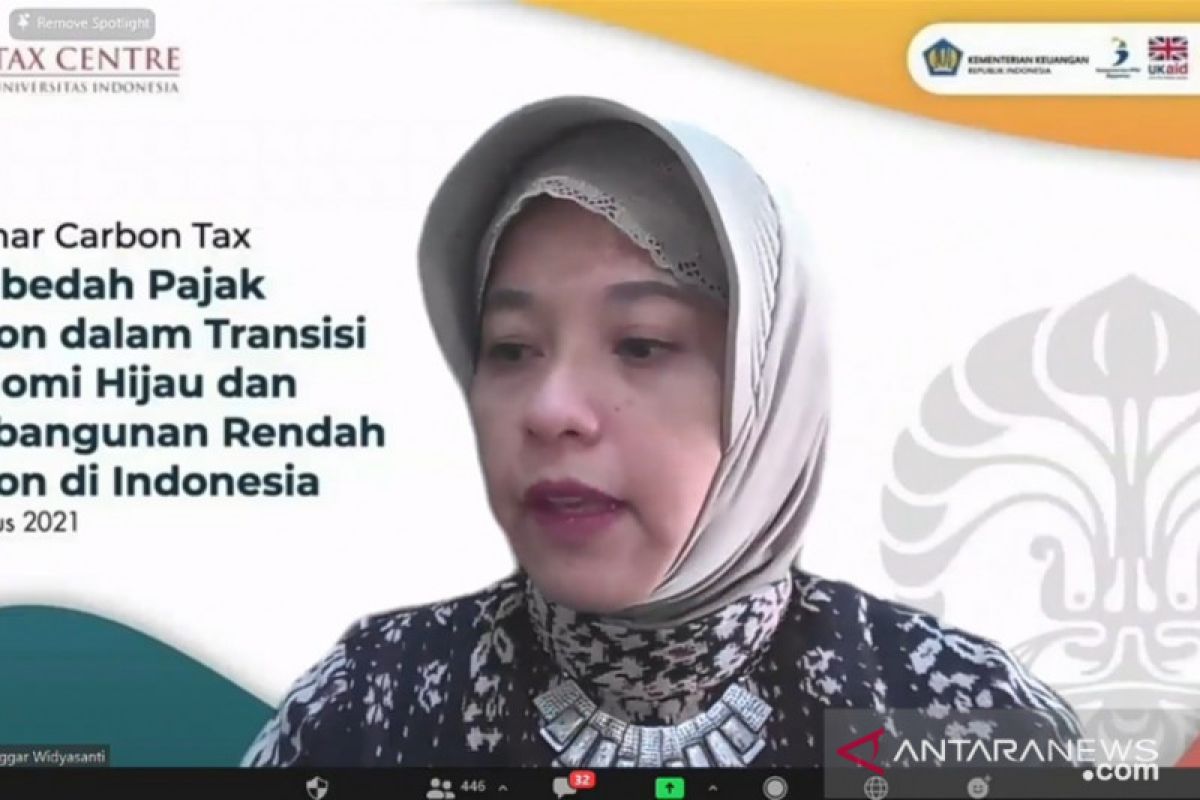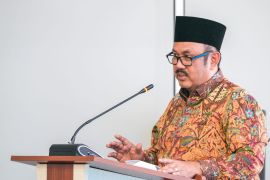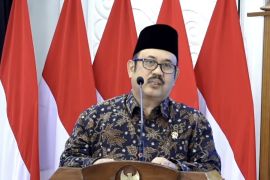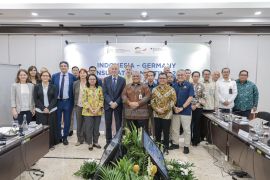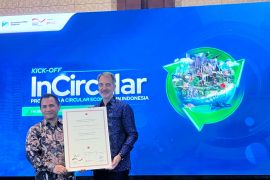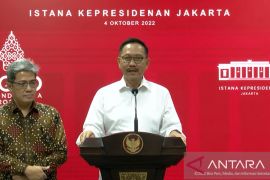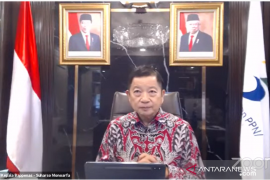Carbon tax is anticipated to escalate the competitiveness of Indonesian products in the global marketJakarta (ANTARA) - Carbon tax can be a tool to realize Golden Indonesia before the goal year of 2045, deputy for economic affairs at the Ministry of National Development Planning/National Development Planning Agency (Bappenas) Amalia Adininggar has said.
"The ministry hopes that the carbon tax can encourage the process of transition and transformation of the green and sustainable economy," she said at a webinar on carbon tax organized by the University of Indonesia's Tax Centre here on Monday.
"The tax is expected to be an instrument towards (realizing) Golden Indonesia before 2045," she added.
According to Adininggar, the implementation of a greener circular economy, which can be driven by carbon tax, is expected to raise the gross domestic product (GDP) by around Rp593 trillion to Rp638 trillion by 2030.
The application of a circular economy can boost economic growth by up to 0.6 basis points, she observed. Thus, Indonesia's economy, which averages growth of 4.9 percent per year, can achieve growth of 5.5 percent per year, she said.
"Carbon tax is also anticipated to escalate the competitiveness of Indonesian products in the global market. It is because of the current global trend of green-product-labeled goods that will be more marketable in the global market," she informed.
In addition to collecting carbon tax from industry, other economic sectors can be taxed on their carbon output too, such as agriculture, settlements, and fisheries, she pointed out.
Policies for the green economy have been enforced more strictly in many countries, she added.
Germany is using 30-percent of its economic recovery stimulus to reduce carbon emissions, Adininggar said.
France has also allocated 30 billion euros for green economic recovery, which includes construction of public transport, incentives for cyclists, energy efficiency for public buildings, industrial transitions, and the greening of the food sector, she added.
"Meanwhile, South Korea invested US$138 in the Korean New Deal, which encompassed pushing electric vehicles production, building electric charging stations, and reducing as well as recycling energy use," Adininggar said.
Related news: Indonesia's carbon emission reduction depends on 5 sectors: minister
Related news: Carbon tax should not be imposed on individuals: legislator
Related news: Indonesia must devise its own carbon tax law: tax observer
Translator: Sanya S, Kenzu T
Editor: Sri Haryati
Copyright © ANTARA 2021
